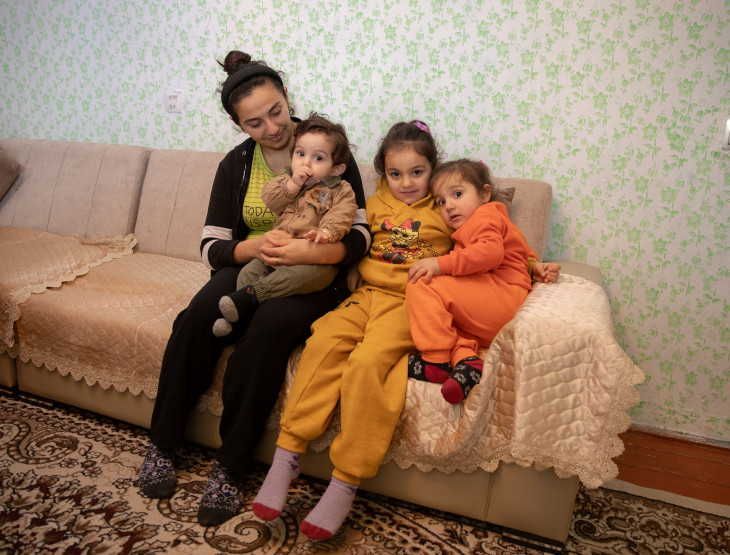© Aida Aliyeva/ICRC
“It was the eve of the Novruz holiday. Around late afternoon my son and his cousin went to visit our home village after more than 30 years. But a joyous occasion turned tragic for all of us and changed our lives. It is an unbearable pain,” says Ibrahim, Israyil’s father.
 © Aida Aliyeva/ICRC
© Aida Aliyeva/ICRC
Since the escalation of hostilities in autumn 2020 there has been a persistent rise in the number of civilians falling victim to mine incidents. According to the Ministry of Foreign Affairs of Azerbaijan Republic (MFA), 350 people fell victim in incidents involving landmines and explosive remnants of war (ERW) between November 2020 and March 2024.
 © Aida Aliyeva/ICRC
© Aida Aliyeva/ICRC
Farida remembers the day that Israyil left home. “I went to bed, but I couldn’t sleep. It was as if I had a sense of the lurking tragedy. Then my mother-in-law came and told me that they had been trying to call Israyil but could not connect with him,” she shares. As time passed, Farida waited anxiously for Israyil’s return. When there was no news for several hours, she began to fear the worst.
After the explosion, representatives of Mine Action Agency of the Republic of Azerbaijan (ANAMA) went to recover the bodies. “They found his body in the evening of 16 March. My labour pains started as I stood beside his coffin. Our baby was born at 10 am on 17 March and Israyil was buried at 11 am,” says Farida, recalling the heartbreaking sequence of events.
“Only those who go through something like this will understand. People may say it is OK to go back to those territories but once you go there is no way back. Don’t go to those territories. Think about your loved ones.” Farida’s sense of despair is palpable.
 © Aida Aliyeva/ICRC
© Aida Aliyeva/ICRC
Landmines leave lasting scars as a legacy of violence, trapping communities in fear and uncertainty even when the fighting stops. Each person killed leaves behind a devastated family, struggling to rebuild their lives. Among the mess left behind after the explosions, families deal not only with the emotional toll but also with administrative burdens, while coping with the economic strain of sudden expenses and lost livelihoods. Recognizing these varied challenges, the International Committee of the Red Cross (ICRC) steps in, offering assistance. The ICRC provides cash assistance to the families of mine victims, alleviating the burden of funeral expenses and offering support for their shattered livelihoods.
The ICRC is an impartial, neutral and independent organization whose exclusively humanitarian mission is to protect the lives and dignity of people affected by armed conflict and other violence.
We acknowledge Source link for the information.
